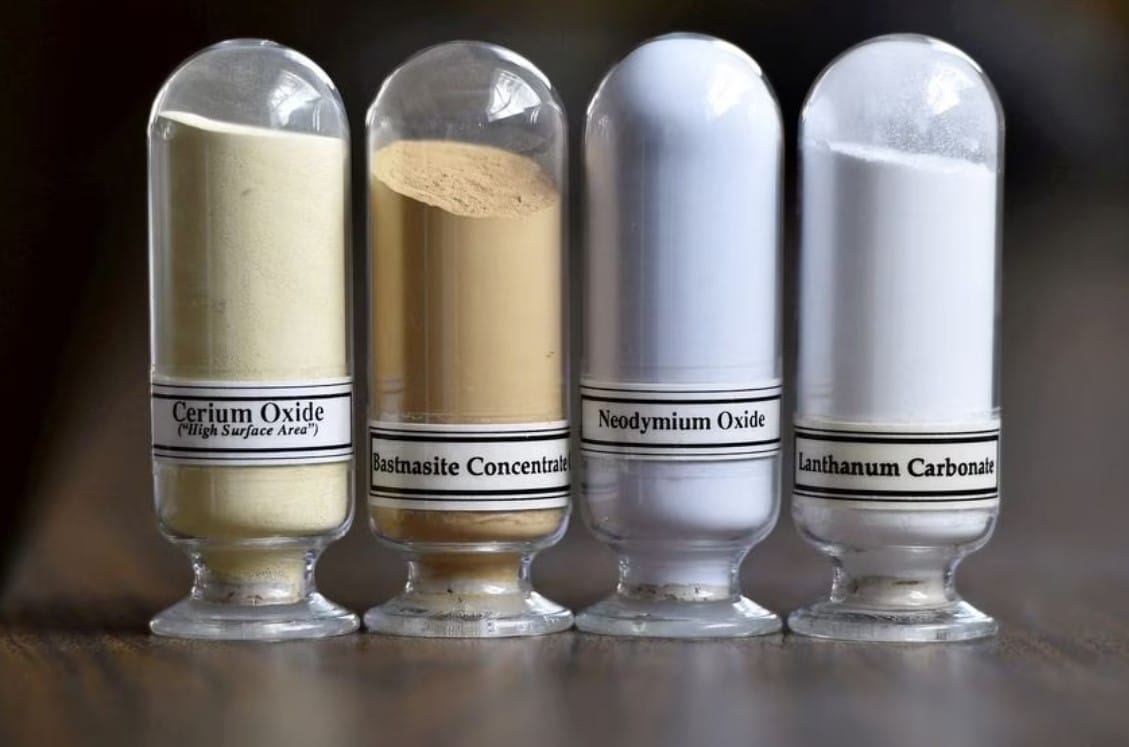The shift to sustainable energy sources has marked the energy transition from traditional fossil fuels to renewable and clean energy sources.
Andreas Poullikkas, Chairman of the Cyprus Energy Regulatory Authority (CERA), has highlighted the key role of critical minerals, including rare earths, in this transformative process.
In a piece of analysis, the CERA chief pointed out that “for the feasibility of this transformation, critical minerals including rare earths are essential elements, with a leading role in the success of the energy transition.”

CERA chairman Andreas Poullikkas
Critical minerals represent a group of elements and minerals that are considered essential for modern technologies, green growth, and the efficient operation of many industries, particularly those related to energy production and storage. Poullikkas said, “Their importance lies in their central role in powering renewable energy infrastructure such as photovoltaic systems, wind turbines, electric vehicle batteries, and energy storage systems.” He emphasised that they serve as the backbone of various components enabling the transition to clean energy.
At the forefront of critical minerals are elements such as lithium, cobalt, nickel, and rare earth metals such as neodymium, dysprosium, and terbium. These minerals, as Poullikkas noted, “are the cornerstones of the technologies necessary for the energy transition.”
For instance, cobalt and lithium are central to the development of high-energy-density batteries necessary for electricity storage. “Lithium-ion batteries, embedded in electric vehicles and electricity storage systems, rely heavily on lithium, cobalt, and nickel,” Poullikkas said. Similarly, he pointed out that rare earths are vital for producing the strong magnets needed for wind turbines and making compact and efficient electric motors for electric vehicles.
However, the limited availability or scarcity of critical minerals poses challenges to the widespread adoption of renewable energy and clean technologies. Poullikkas said, “Demand for these minerals is increasing as countries worldwide commit to reducing carbon dioxide emissions and moving away from fossil fuels.”
This growing demand requires efforts to ensure sustainable and alternative supply chains, promote good mining and recycling practices, and invest in research and development of alternative materials or technologies that reduce dependence on critical minerals.
Ensuring a stable supply of critical minerals is imperative to advancing the energy transition. According to Poullikkas, “It requires international cooperation, innovation in mining and recycling technologies, and strategic planning to address challenges related to supply chain vulnerabilities, environmental impacts, and geopolitical dependencies.” A sustainable and diversified supply of these critical minerals is vital to achieving a cleaner and more sustainable energy future.
Many of the critical minerals are concentrated in specific geographic areas, raising concerns about supply chain vulnerabilities and geopolitical tensions.
Overreliance on a few suppliers can potentially disrupt supply, affecting the progress of clean energy technologies and causing price fluctuations.
The establishment of critical minerals hubs in both the US and the EU represents a strategic move by Western countries to ensure a stable supply chain for key critical minerals relevant to the energy transition. “The importance of these hubs lies in their potential to promote innovation, reduce dependence on foreign sources, and ensure a sustainable and reliable supply of minerals vital to the advancement of clean energy technologies,” Poullikkas explained.
The US has significant reserves of critical minerals, including lithium, cobalt, rare earths, and others necessary for renewable energy technologies. The establishment of a critical minerals hub in the US can leverage these domestic resources, fostering economic growth and technological progress and fostering further cooperation with the EU. “The hub’s role in the US energy transition is multifaceted,” Poullikkas said, adding that it allows the country to reduce its dependence on imports of critical minerals, thereby enhancing energy security.
Similarly, the EU recognises the imperative need for a robust supply of critical minerals to meet its ambitious climate and energy goals. “A critical minerals hub based in the EU and full cooperation with the hubs in the US aligns with the EU’s goals to transition to renewable energy sources and reduce carbon dioxide emissions,” Poullikkas stated.
EU efforts to create a critical minerals hub are focused on diversifying supply sources and reducing dependence on external suppliers, thereby streamlining the extraction, processing, and refining of critical minerals within the EU, ensuring a sustainable supply chain for clean energy technologies.
In conclusion, as Poullikkas said, “critical minerals are the foundation of the energy transition, enabling the development and application of clean energy technologies vital to a sustainable future.”
However, their scarcity, supply chain challenges, and environmental impacts require concerted efforts to ensure responsible extraction, efficient use, recycling, and exploration of alternatives. “Adopting a holistic approach that balances technological progress, good mining practices, and sustainability,” Poullikkas states, “is paramount to harnessing the potential of critical minerals in driving the energy transition.”







Click here to change your cookie preferences